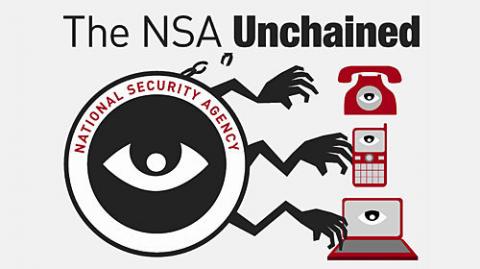In 1978, the Foreign Intelligence Surveillance Act, FISA was signed into law. However since the terrorist attacks that occurred on September 11, 2011, it has been repeatedly amended.
This law governs the statutory procedure for the requisition of judicial authorization for physical searches and electronic surveillance of persons who are deemed to be engaged in espionage or international terrorism, on behalf of a foreign power or agent of a foreign power within its borders. In other words, the Intelligence Surveillance Act provides direction for seeking authorization to carry out federal collection (electronic observation or physical searches) for foreign intelligence information. Foreign intelligence information refers to any information deemed necessary to protect the United States from sabotage, an actual or potential grave attack or international terrorism.
The term foreign powers refer to:
- A foreign government
- Any foreign government or fraction(s) of a foreign government not largely made up of US persons.
- Any group or body who operates under the directive of a foreign government.
The Impetus for the Intelligence Surveillance Act Enactment
It was introduced by Senator Ted Kennedy in 1977 and was enacted into law by President Carter. The aim was for the government to acquire court orders allowing the use of electronic monitoring on enemy agents and spies connected to foreign entities, especially those connected to international terrorist groups.
The Act was a response to buffer domestic covert surveillance activities that violate the Fourth Amendment. Amendments make it possible for FISA to permit the Court to supply warrants for physical searches, but only for foreign intelligence purposes as defined by statute.
Provisions of the Act include:
As it relates to electronic observations, the statute only permits this in two instances, with and without a court order. The government may seek a court order that permits surveillance. This order is granted by the United States Foreign Intelligence Surveillance Court or FISA court and is only granted if the court can find probable cause that the target of the surveillance is a foreign power or acting on the advice of a foreign power (agent). The act speaks to US people as well as non US people who act as agents for a foreign power. It is explicitly stated that if a person who is classified as a US person is the target, federal/judicial authorization is necessary within a 72 hour time frame after surveillance has commenced.
Intelligence Surveillance Act
- Citizens by birth
- Persons admitted to the country lawfully (permanent residents/aliens)
- Organizations and corporations of U.S. origins
From the onset, it was determined that a warrant/court order requirement would protect the free expression interests as well as privacy of individuals.
On the other hand, the Attorney General may authorize electronic scrutiny without a court order for up to a year if it is documented in writing that the surveillance is only focused on communication between foreign powers and guarantee that the chance of such communications
The Act allows for:
– Physical searches
The Act allows for premises to be physically searched, which includes materials, information or property solely used the target of the surveillance.
– Access to certain business records
Should there be suspicions that certain corporations or business are tied to international terrorist groups and foreign powers with ill intentions, the Act allows for the ability to request records.
-The use of pen registers, (wire) taps and tracing devices
Information gathering devices are covered under the Act.
– Reporting requirement
A semi-annual report on activities is required to be submitted by the Attorney General to the Permanent select committee on Intelligence of the House of Representative.
Provisions for Violations
Violations of the Foreign Intelligence Surveillance Act can result in criminal or civil liability. Penalties can either be fines or jail time. The statute also provides for punitive damages.
Criticisms of the Act
There have been several criticisms of the Foreign Intelligence Surveillance Act of 1978 stating that there have been many violations where citizens are being monitored without probable cause. Some corporations have stated that there needs to be more transparency when the provisions of the Act are exercised. Since the infamous and unfortunate 9/11 attacks, the United States has been more keen on collecting more foreign intelligence information to safeguard against future attacks. However, some critics have argued that liberties could be infringed upon in the wake on national security measures being executed. However, supporters laud the presence of the Act as useful to detect and prevent of terrorist attacks from within.
